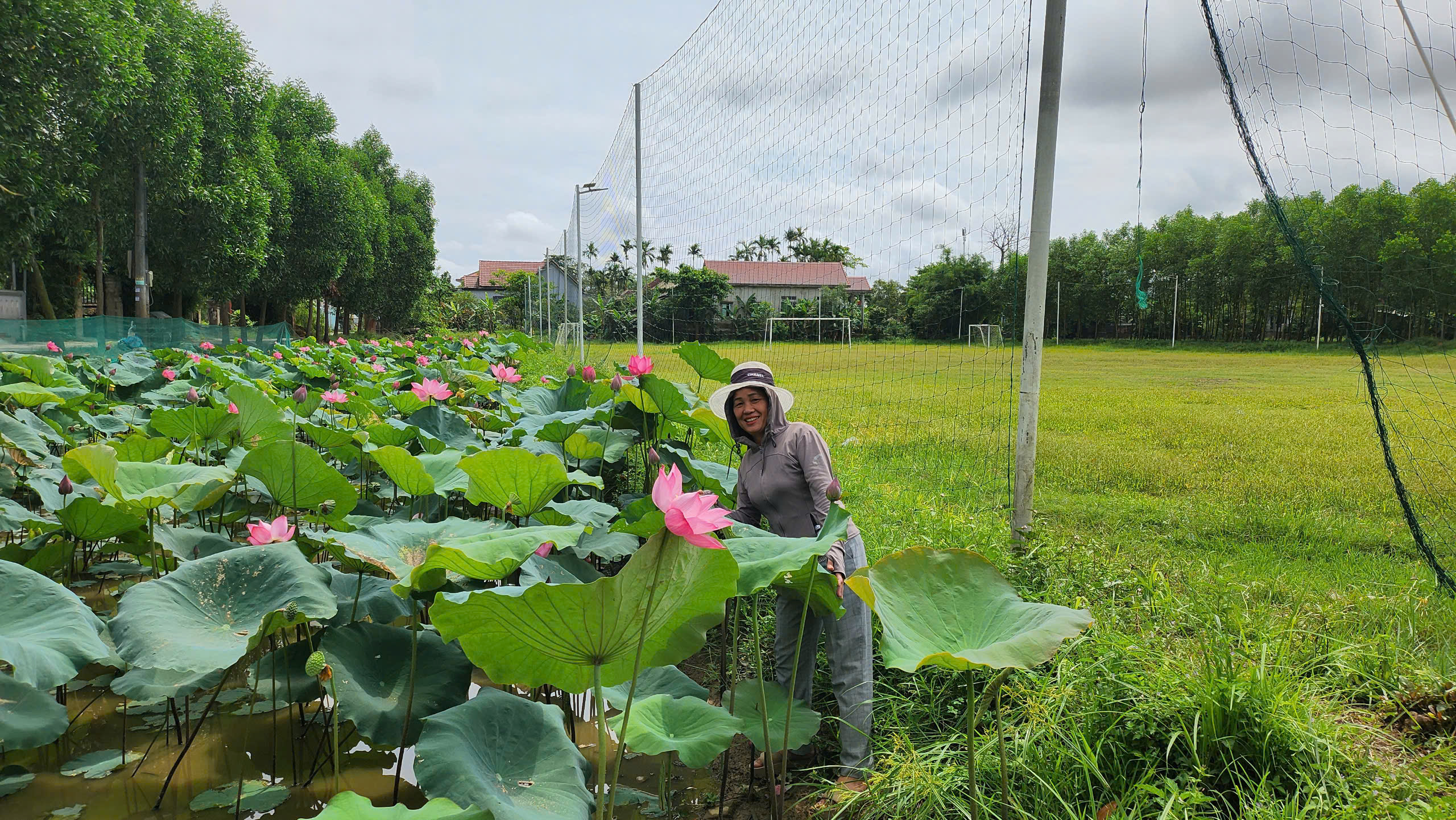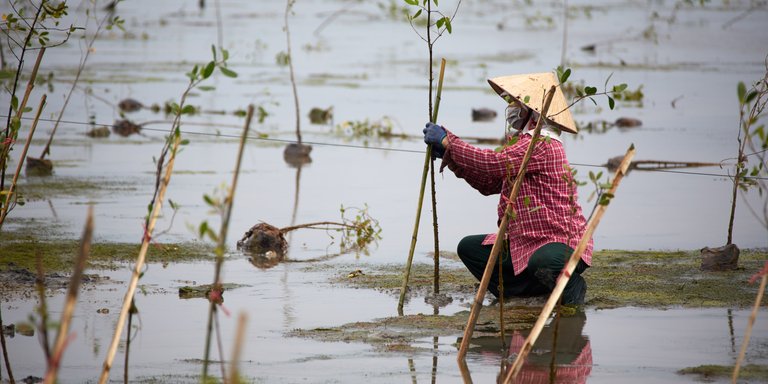
A research study to discover how nature-based solutions empower communities in Vietnam
Key findings from CSRD study, 2025
properties.trackTitle
properties.trackSubtitle
Climate change and disasters

Community resilience
Against this backdrop, communities are harnessing the power of nature to protect themselves and their livelihoods. Mangrove restoration, sustainable aquaculture, and community-based ecotourism are just a few of the nature-based solutions being implemented. These approaches not only mitigate disaster risks but also create economic opportunities and preserve biodiversity.
Women, often the most vulnerable to climate change impacts, are emerging as key players in the fight for resilience. From leading mangrove planting initiatives to managing sustainable aquaculture cooperatives, women are driving change and empowering their communities. Their active participation is crucial for the success of NbS and EbA projects. The study showed that women represented 60% of the participants, and 67% of them were engaged in group discussions and in-depth interviews at the commune level.

Models of resilience

Recommendations for action
The study proposes several recommendations to enhance community resilience and promote sustainable livelihoods. These include strengthening early warning systems, enhancing community capacity, promoting market linkages for local products, and organizing field visits to learn from successful models. Additionally, the study calls for increased support for women-led initiatives and the integration of NbS and EbA into local development planning. The study found that 85% of the surveyed sites expressed a need for access to capital, breeding stock, technical training, marketing skills, and entrepreneurship support.
As climate change continues to pose significant threats, the adoption of nature-based solutions and ecosystem-based adaptation offers a promising path forward. By empowering communities, particularly women, and harnessing the power of nature, Thua Thien Hue province can build resilience, secure sustainable livelihoods, and protect its rich biodiversity. The time to act is now, and the direction is clear. The study concluded that 74% of community opinions considered NbS and EbA to play a very important role in promoting sustainable livelihood development, green economy, and circular economy. This is a great fundament for our future activities in the “Strong roots, strong women” project.

The study, conducted from May to July 2025, integrated 20 communes/wards/towns across 6 districts of Thua Thien Hue (currently named Hue City). The research team employed a multidimensional and interdisciplinary approach, utilizing methods such as Participatory Action Research (PAR), systems thinking, gender analysis, and exploratory perspectives. Data collection tools included literature review, key informant persons interviews, in-depth interviews, focus group discussions, case studies, field surveys, and data analysis and processing.
CB, GP, 25 September 2025





